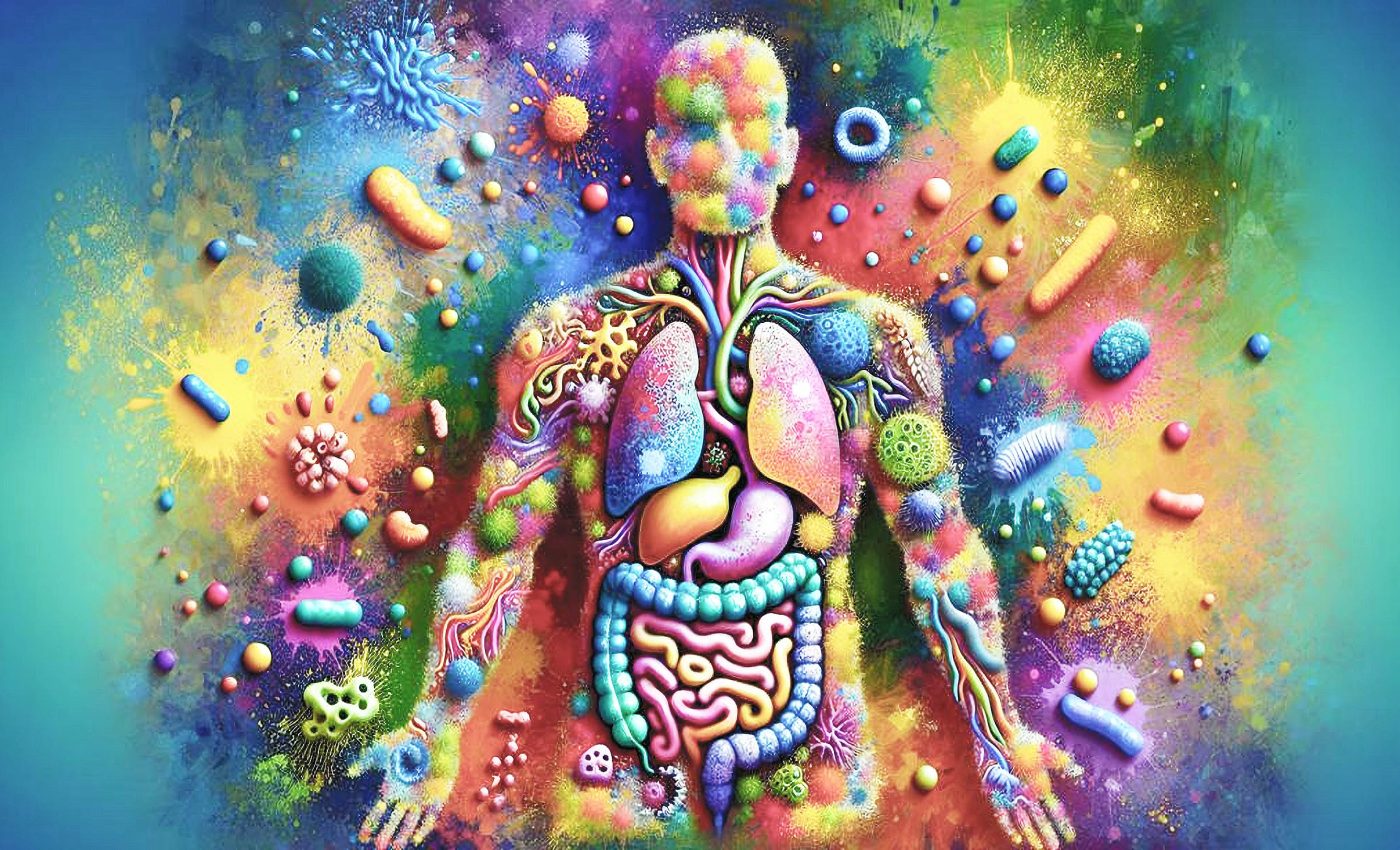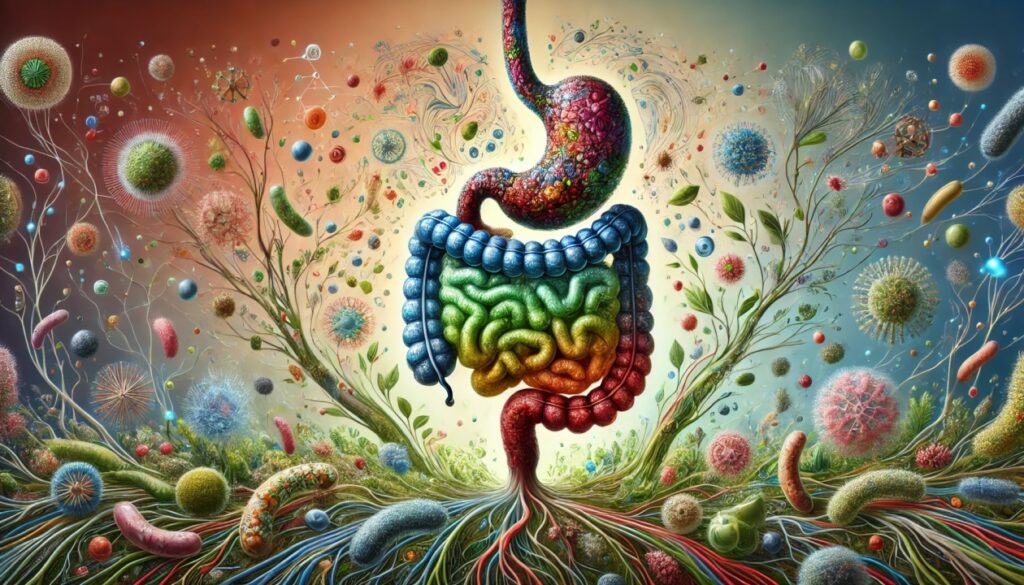The human microbiota, a complex community of microorganisms residing in and on our bodies, plays an integral role in maintaining health. From aiding digestion to regulating immunity and influencing mental well-being, this invisible ecosystem is crucial. However, myths and misconceptions about the microbiota abound, often obscuring the facts. In this article, we debunk common myths, reveal scientific truths, and provide actionable tips to help you understand and care for your microbiota.
The Basics of the Human Microbiota
Composition of the Microbiota
The microbiota consists of trillions of bacteria, fungi, viruses, and other microorganisms. These microbes are not uniformly distributed; different regions of the body host distinct microbiotas:
- Gut Microbiota: The most diverse and influential, affecting digestion and overall health.
- Skin Microbiota: Protects against harmful pathogens and maintains skin health.
- Oral Microbiota: Balances oral health and prevents dental issues.
- Vaginal Microbiota: Maintains reproductive health and prevents infections.
How the Microbiota Develops
Colonization begins at birth, influenced by the mode of delivery (vaginal vs. C-section) and continues to evolve through infancy, childhood, and adulthood. Factors such as genetics, diet, lifestyle, and environment significantly shape microbiota composition over time.
Why the Microbiota is Essential
The microbiota performs critical functions, including:
- Aiding digestion and nutrient absorption.
- Producing vitamins like B12 and K.
- Regulating the immune system and protecting against infections.
- Communicating with the brain via the gut-brain axis.
Common Myths About the Microbiota
Myth: All Bacteria Are Bad
- Fact: Most bacteria are either beneficial or neutral. Only a small fraction are harmful pathogens.
- The microbiota relies on commensal bacteria to maintain balance and prevent the colonization of harmful microbes.
Myth: Antibiotics Only Target Harmful Bacteria
- Fact: Antibiotics disrupt both harmful and beneficial bacteria, often leading to dysbiosis (microbial imbalance).
- Overuse of antibiotics can weaken the microbiota, increasing the risk of infections and chronic diseases.
Myth: Probiotics Work the Same for Everyone
- Fact: Probiotic efficacy varies based on an individual’s unique microbiota composition.
- Personalized approaches to probiotics are emerging to improve outcomes.
Myth: A Clean Environment is Always Best
- Fact: Over-sanitization can harm microbiota diversity, especially in children.
- Exposure to diverse microbes early in life strengthens the immune system.
Myth: The Gut Microbiota is the Only Important Microbiota
- Fact: While the gut microbiota is pivotal, other microbiotas (e.g., skin, oral, vaginal) are equally important for specific health functions.
Key Facts About the Microbiota

The Microbiota is Highly Dynamic
The microbiota adapts to changes in diet, lifestyle, and environment. Even short-term dietary shifts can alter microbial composition.
Microbiota Diversity Equals Resilience
A diverse microbiota is linked to better health outcomes, while low diversity is associated with obesity, autoimmune diseases, and chronic conditions.
The Gut-Brain Axis: Microbes and Mental Health
The gut and brain communicate through microbial metabolites and the vagus nerve. Microbiota imbalances have been linked to mood disorders like anxiety and depression.
Diet and Microbiota
- Fiber: Supports beneficial bacteria by producing short-chain fatty acids (SCFAs).
- Fermented Foods: Provide probiotics that enhance microbial balance (e.g., yogurt, kimchi).
- Processed Foods: Harm microbiota diversity and promote inflammation.
The Role of the Microbiota in Immunity
The microbiota trains the immune system to distinguish between harmful and harmless substances, reducing the risk of allergies and autoimmune diseases.
The Science Behind Microbiota Health
Microbiome Research Advances
New tools like metagenomics and single-cell sequencing have revolutionized microbiota research, uncovering previously unknown microbial functions.
Microbiota and Personalized Medicine
Microbiota profiles are increasingly used to tailor treatments for conditions like irritable bowel syndrome (IBS) and cancer. Biomarkers derived from the microbiota may soon predict disease risk.
Restoring Microbiota Balance
Dietary changes, prebiotics, probiotics, and emerging therapies like fecal microbiota transplantation (FMT) can restore microbial health.
The Consequences of Microbiota Imbalance (Dysbiosis)
What is Dysbiosis?
Dysbiosis occurs when the microbial balance is disrupted, often due to antibiotics, poor diet, or stress. It can lead to various health issues.
Diseases Associated with Dysbiosis
- Gastrointestinal Disorders: IBS, IBD, and colorectal cancer.
- Chronic Diseases: Diabetes, cardiovascular diseases, and obesity.
- Mental Health Conditions: Depression, anxiety, and autism spectrum disorders.
- Skin Conditions: Acne, eczema, and psoriasis.
Long-Term Effects of Dysbiosis
Chronic inflammation, weakened immunity, and altered metabolism are common outcomes of long-term dysbiosis.
Practical Tips for Supporting a Healthy Microbiota
Dietary Recommendations
- Eat a fiber-rich diet (e.g., whole grains, fruits, vegetables).
- Incorporate fermented foods like kimchi, miso, and kefir.
- Avoid processed foods and excessive sugar.
Lifestyle Habits
- Engage in regular exercise to promote microbial diversity.
- Manage stress through mindfulness or meditation.
Avoiding Harmful Practices
- Limit unnecessary antibiotic use.
- Avoid excessive use of antibacterial soaps and sanitizers.
Using Probiotics and Prebiotics Wisely
Choose probiotics tailored to your health needs and include prebiotic-rich foods to feed beneficial bacteria.
The Future of Microbiota Research
Advancements in Microbiota Therapies
Targeted probiotics, microbiome-based drugs, and gene-editing tools like CRISPR are being developed to treat dysbiosis-related diseases.
Applications in Precision Medicine
Microbiota data is being integrated into personalized healthcare to optimize disease prevention and treatment.
Global Microbiota Initiatives
Large-scale projects aim to map human and environmental microbiota, ensuring microbial diversity is preserved.
Conclusion
Understanding the microbiota—and separating myths from facts—is essential for optimizing health. This inner ecosystem profoundly influences digestion, immunity, mental health, and more. By adopting microbiota-friendly habits and staying informed about the latest research, you can support your body’s microbial allies for a healthier future.


